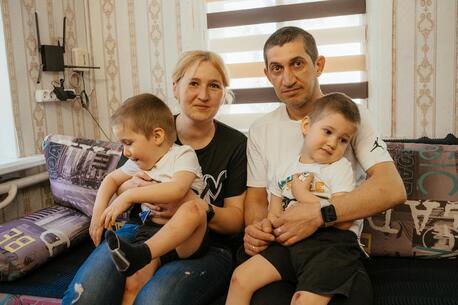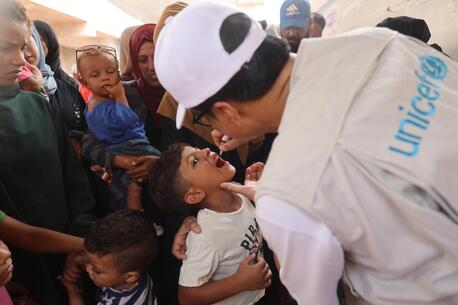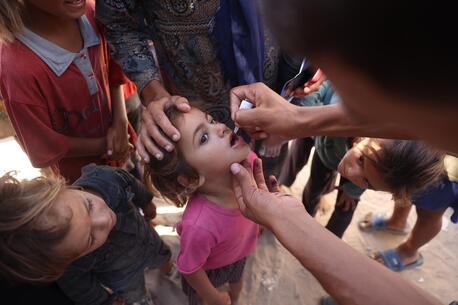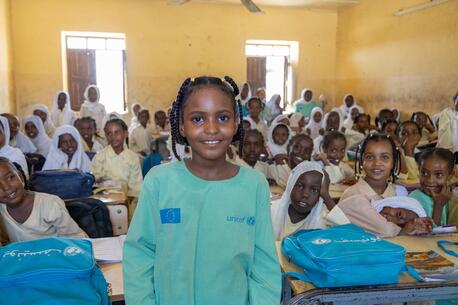
A School Bag Full of Hope for Young Learners in Sudan
UNICEF is distributing urgently needed school supplies to help children displaced by violence get back to learning.
When fighting reached Sennar in southeastern Sudan, 9-year-old Wisam and her family were forced to flee to Port Sudan, a small city on the Red Sea coast, leaving behind most of their belongings.
Wisam’s memories of that time remain vague, but she vividly recalls the heartbreak of leaving some of her most precious possessions behind. “I left my toys, books, uniform, bag and pencils,” she says quietly, her voice tinged with nostalgia. “My uniform was beautiful.”
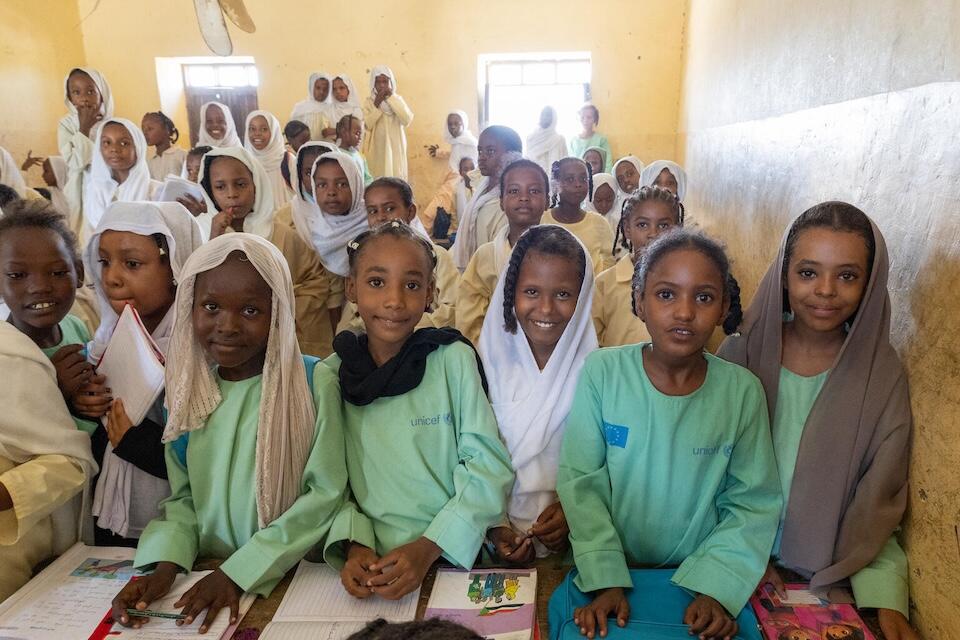
Sudan is currently facing the world's largest child displacement crisis. Millions of children and families, many displaced multiple times, have fled their homes with little more than the clothes on their backs.
Schools in Port Sudan recently reopened, and Wisam and her siblings are back in the classroom. Like many displaced children, they had hardly any school supplies, just a few books that their parents bought from a nearby shop. With so many pressing challenges, buying Wisam a new school bag was not high on her parents’ list of priorities.
That's when UNICEF stepped in. At Wisam’s new school, and in many other public schools, UNICEF distributed essential school supplies — chalk, backpacks, rulers, notebooks, erasers, colored pencils and uniforms — ensuring that even in the midst of conflict, displaced children like Wisam could get back to learning.
In times of emergency, learning supplies are critical in upholding children’s right to education.
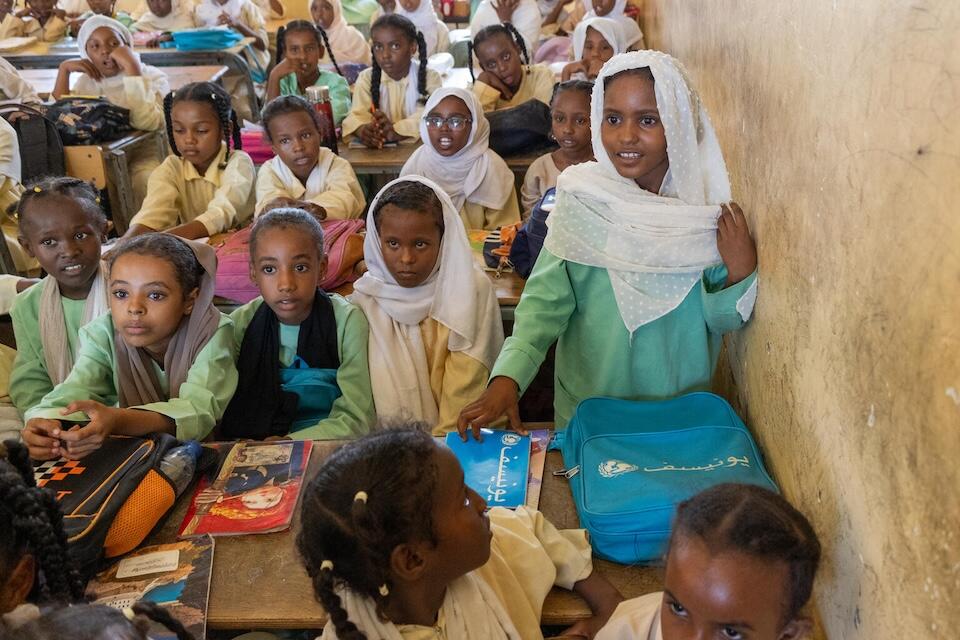
Starting over in a new school, with confidence
Now in grade 3, Wisam listens attentively during an English lesson. When it’s time to take notes, she quickly reaches into her UNICEF backpack, pulling out notebooks, colored pencils and other supplies.
“I love my new bag,” she shares excitedly. “It’s much bigger than the one I had at home.”
Wisam is also an active participant in class, frequently raising her hand to answer questions with confidence. Her new uniform adds to her sense of pride and belonging.
After her classmates leave, Wisam lingers in the empty classroom, absorbed in drawing a flower in her small notebook. Art is her favorite pastime, and now, with her new set of pencils, she’s excited to add vibrant shades to her drawings.
“I will share the colors with my siblings,” she says with a smile.
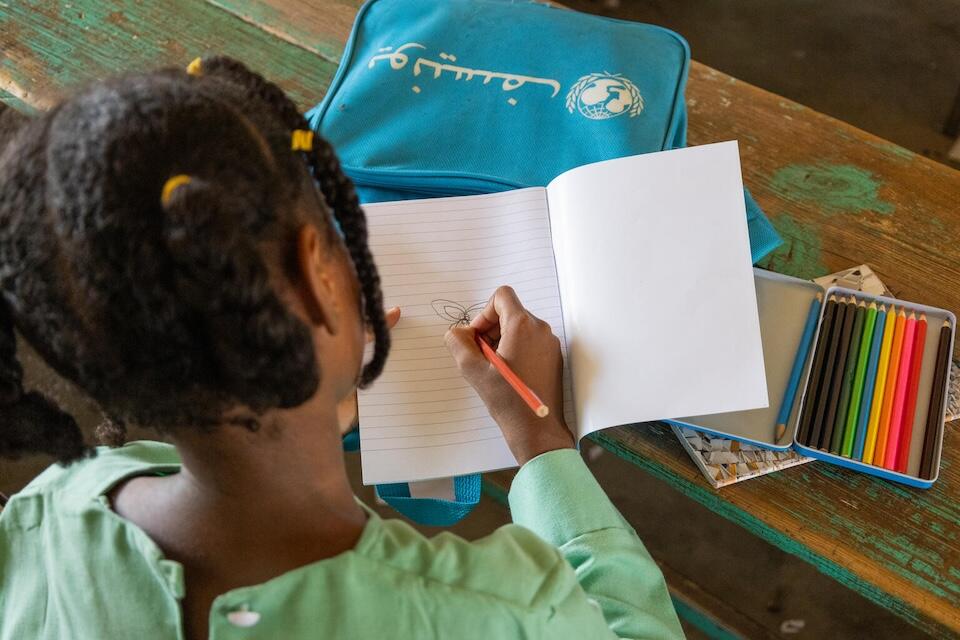
School offers a sense of normalcy for children displaced by conflict
In September, nearly 140,000 children across Sudan's Red Sea State returned to class, with the reopening of 600 schools.
“For millions of children in Sudan today, going to school and receiving a good education is a dream out of reach," Sheldon Yett, UNICEF Representative to Sudan said during a visit to the Alwihda Janoob school for girls in Port Sudan. "The reopening of schools in Red Sea State signals hope."
For millions of children in Sudan today, going to school and receiving a good education is a dream out of reach. — Sheldon Yett, UNICEF Representative to Sudan
More than 17 million of Sudan's 19 million school-aged children remain out of school. Hundreds of school buildings have been damaged since the beginning of the brutal conflict in April 2023, and many others are being used as shelters for internally displaced people.
For children in war-torn countries, schools are not only places to learn. They also serve as a refuge, providing a protective environment and helping them cope with trauma. Education can also prevent harmful practices such as child labor and child marriage and protect adolescents from recruitment by armed groups.
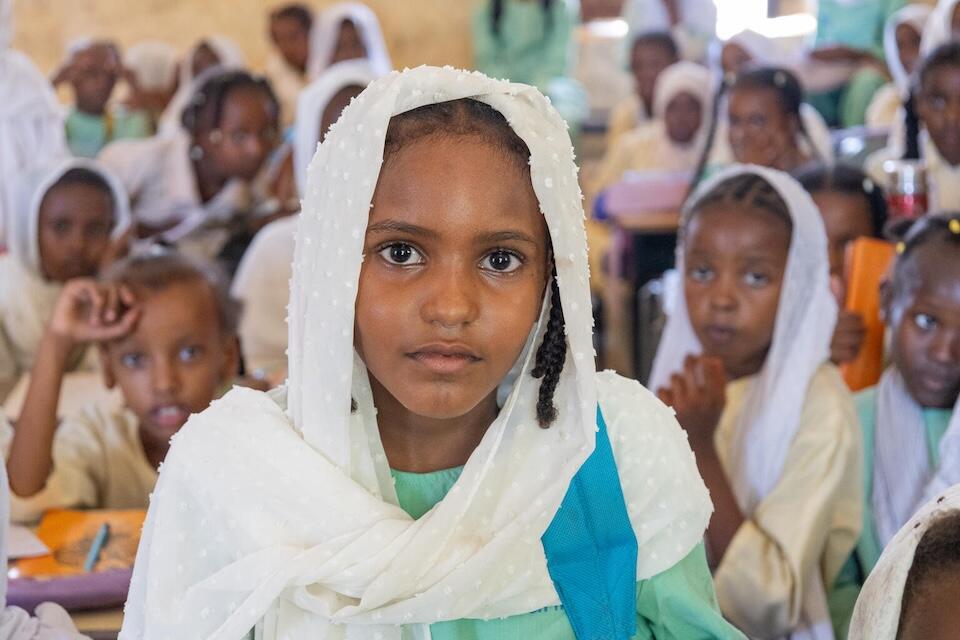
As the reopening of schools becomes a priority amid these dire circumstances, UNICEF — supported by the European Union, Education Cannot Wait and UNICEF regular resources — continues to provide critical education supplies.
Wisam, like many other children, is benefiting from these efforts. Despite the joys of her new school bag filled with hope, she still longs to return to Sennar.
“Home is better than here,” she says softly. “But we can’t go back because of the war. The war is very bad.”
Learn more about UNICEF's work for children in Sudan.
UNICEF works with partners around the world to provide children with quality learning opportunities. Your support will make a difference. Please donate today.
This story originally appeared on unicef.org
HOW TO HELP
There are many ways to make a difference
War, famine, poverty, natural disasters — threats to the world's children keep coming. But UNICEF won't stop working to keep children healthy and safe.
UNICEF works in over 190 countries and territories — more places than any other children's organization. UNICEF has the world's largest humanitarian warehouse and, when disaster strikes, can get supplies almost anywhere within 72 hours. Constantly innovating, always advocating for a better world for children, UNICEF works to ensure that every child can grow up healthy, educated, protected and respected.
Would you like to help give all children the opportunity to reach their full potential? There are many ways to get involved.



